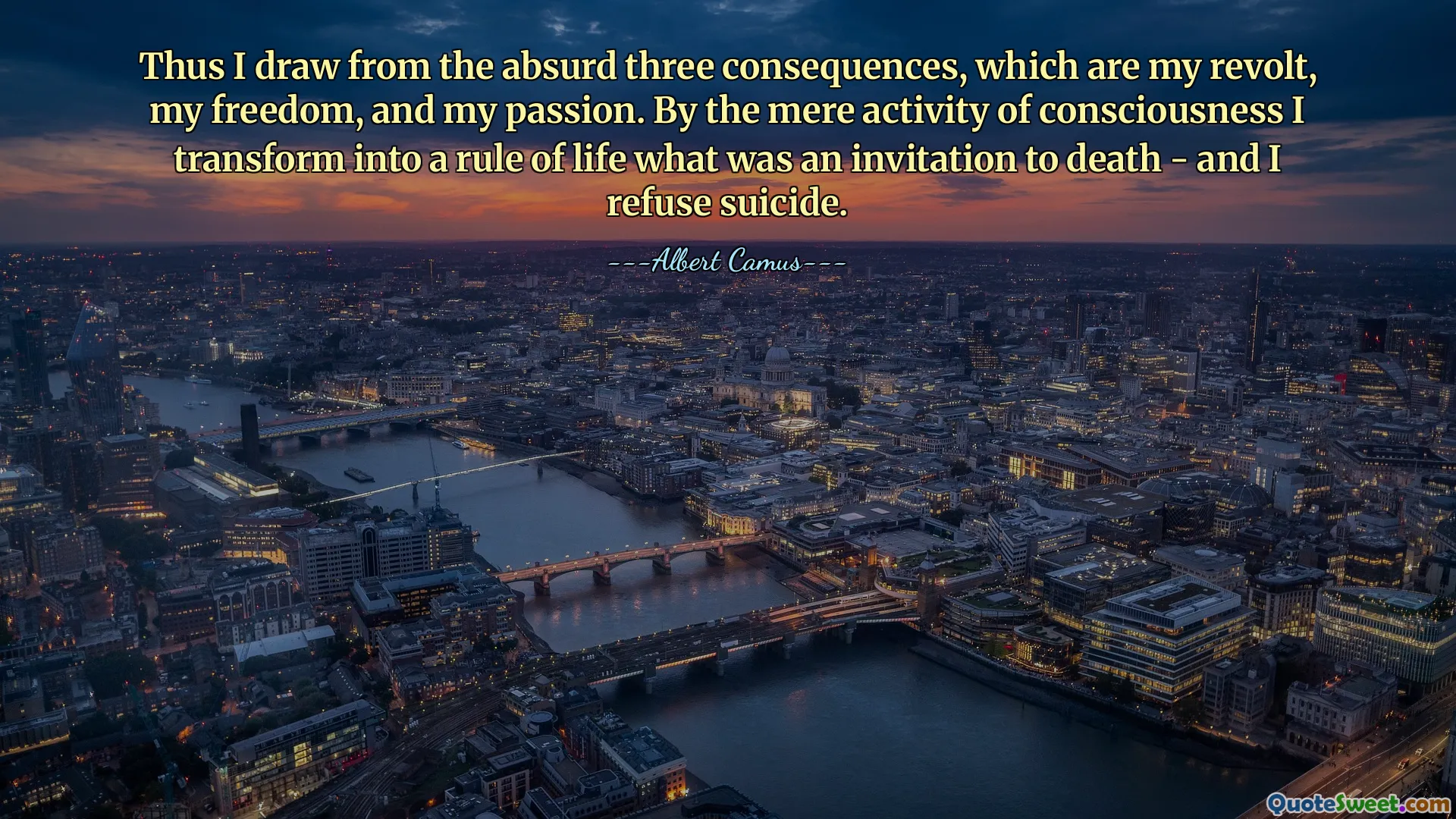
Thus I draw from the absurd three consequences, which are my revolt, my freedom, and my passion. By the mere activity of consciousness I transform into a rule of life what was an invitation to death - and I refuse suicide.
Albert Camus, in this profound excerpt, touches on the core tenets of his philosophy regarding the absurd—the conflict between human desire for meaning and the silent, indifferent universe. The three consequences he identifies—revolt, freedom, and passion—represent a powerful resurrection in the face of this existential dilemma. Camus does not suggest passive acceptance of absurdity but an active confrontation that defines human existence. His revolt is a refusal to capitulate to nihilism, a declaration that absurdity itself can fuel resistance rather than despair. Through this rebellion, emerges freedom—not one born of external conditions but an internal liberation stemming from fully acknowledging life's lack of inherent meaning. This freedom is radical and profound, inviting one to shape life based on personal values rather than predetermined cosmic order. Finally, passion arises from this very consciousness. Life, though absurd and confronting the inevitability of death, becomes intensely vivid and meaningful because it is lived in full awareness. Camus’s statement about transforming what initially serves as an invitation to death into a code for living is both stirring and deeply human. Refusing suicide is not a resignation but a bold acceptance and assertion of life’s value on intrinsic terms. This quote calls us to embrace the absurd and from it derive a philosophy that empowers us—making life an act of will, passion, and absolute freedom.











